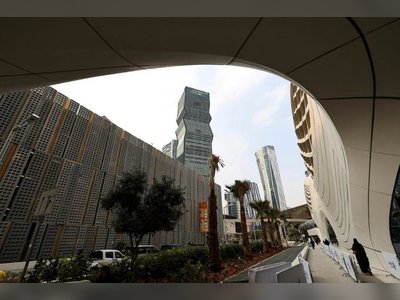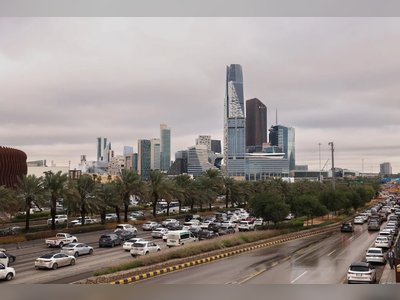0:00
0:00
'Food nationalism' worries rise after India, Malaysia export bans. Policies stoke fears of further inflation, weaponization of supplies.
Soaring global food prices have prompted some Asian countries to halt exports of certain products to protect domestic consumers, raising fears of still higher inflation among their trade partners. More broadly, experts see an imminent risk of "food nationalism" spreading to more countries and products. At least one framed the phenomenon as another setback for globalization.
Effective Wednesday, India allows local businesses to export sugar only with special permission from the government. The measure is designed to "maintain domestic availability and price stability of sugar," and will run to Oct. 31 or until further notice, the government said on May 24.
India was the world's second-largest producer of sugar cane after Brazil in 2020 and the world's largest exporter of refined sugar that year, according to data from the United Nations' Food and Agriculture Organization (FAO).
The sugar export ban follows India's ban in mid-May on exports of wheat, for which it ranks as the world's second-largest producer. The authorities are trying to ensure domestic food security after recent hot weather raised concerns over crop yields.
Likewise, Malaysia, starting Wednesday, curbed chicken exports to address a domestic supply shortage and stabilize prices. This includes live poultry, whole carcasses, chilled and frozen meat, chicken parts and chicken-based products, according to a statement from the Ministry of Agriculture and Food Industries. It has not set a date set for resuming shipments.
The moves by India and Malaysia come as global food inflation accelerates. The FAO's benchmark Food Price Index, which covers meat, dairy, cereals, vegetable oils and sugar, hit 158.5 in April, up 30% from a year earlier. The rise is largely attributed to supply and logistics disruptions caused by the Ukraine war and the COVID-19 pandemic.
Indonesia also halted exports of palm oil in April, although it lifted the ban in May.
"On the whole, I would say that export bans add on to the upside pressure on food prices," Priyanka Kishore, an economist at Oxford Economics, told Nikkei Asia, adding that "the impact is more pronounced for the direct trade partners."
Consider the relationship between Malaysia and Singapore.
The city-state counts on its neighbor for about a third of its chicken imports. Consumers in Singapore rushed to buy fresh chicken at markets after the Malaysian announcement last week.
For developing nations and lower-income households, the uptrend in food prices is particularly worrying.
"Food scarcity, or an unattainable price, especially for poor nations, will cause inflation to rise and cause social unrest much faster than rising oil prices," warned Jeffrey Halley, a senior market analyst at Oanda, a brokerage. "We are likely to see more food nationalism this year," he said.
Even before Russia invaded Ukraine -- both countries are major grain suppliers -- food nationalism was heating up amid the COVID-19 crisis. Vietnam, for example, temporarily halted rice exports in the early days of the pandemic to secure its own supply.
The COVID crisis triggered protectionism not only for food but also other essentials. Some countries prioritized securing coronavirus vaccines for their own people, leading to wide gaps in inoculation rates and leaving people in poorer economies vulnerable.
Akio Shibata, president of the Natural Resource Research Institute in Japan, told Nikkei that the food supply chain had previously been globalizing, like so much else after the World Trade Organization was launched in the 1990s. The basic model was to produce food in low-cost countries and ship it cheaply to consuming nations.
But that trend has been reversed in recent years due to multiple factors, including rising consumption in emerging economies like China, climate change and the recent disruptions, all of which push up prices.
"As prices rise, naturally, given the nature of food, countries change their stance to prioritize domestic protection and domestic supply, and then export if there is surplus capacity," Shibata said. "In the past, the idea was that the more we globalize and commit to the international markets, the more we can contribute to food security. But this is changing."
Looking ahead, Shibata cautioned that as long as prices keep rising, protectionist measures are likely to ripple across more countries and food categories.
There are countervailing effects, he said, noting, "If prices soar, some countries could increase production, and the market could adjust." But as abnormal weather conditions intensify worldwide and affect major crops like rice, wheat, corn and soybeans in key producing countries, "it is a bit inconceivable that the situation will settle down" anytime soon, Shibata said.
He also warned that export bans by large producers with massive stockpiles, such as Russia and China, could become weapons in a broader geopolitical battle.
"If major food-producing countries switch from exports to domestic consumption, there will be a food crisis" in some countries, he said. "If you categorize such countries into friendly or hostile countries, as Russia does, and say that you will provide aid [only] to friendly countries, you will end up using food as a weapon."
India was the world's second-largest producer of sugar cane after Brazil in 2020 and the world's largest exporter of refined sugar that year, according to data from the United Nations' Food and Agriculture Organization (FAO).
The sugar export ban follows India's ban in mid-May on exports of wheat, for which it ranks as the world's second-largest producer. The authorities are trying to ensure domestic food security after recent hot weather raised concerns over crop yields.
Likewise, Malaysia, starting Wednesday, curbed chicken exports to address a domestic supply shortage and stabilize prices. This includes live poultry, whole carcasses, chilled and frozen meat, chicken parts and chicken-based products, according to a statement from the Ministry of Agriculture and Food Industries. It has not set a date set for resuming shipments.
The moves by India and Malaysia come as global food inflation accelerates. The FAO's benchmark Food Price Index, which covers meat, dairy, cereals, vegetable oils and sugar, hit 158.5 in April, up 30% from a year earlier. The rise is largely attributed to supply and logistics disruptions caused by the Ukraine war and the COVID-19 pandemic.
Indonesia also halted exports of palm oil in April, although it lifted the ban in May.
"On the whole, I would say that export bans add on to the upside pressure on food prices," Priyanka Kishore, an economist at Oxford Economics, told Nikkei Asia, adding that "the impact is more pronounced for the direct trade partners."
Consider the relationship between Malaysia and Singapore.
The city-state counts on its neighbor for about a third of its chicken imports. Consumers in Singapore rushed to buy fresh chicken at markets after the Malaysian announcement last week.
For developing nations and lower-income households, the uptrend in food prices is particularly worrying.
"Food scarcity, or an unattainable price, especially for poor nations, will cause inflation to rise and cause social unrest much faster than rising oil prices," warned Jeffrey Halley, a senior market analyst at Oanda, a brokerage. "We are likely to see more food nationalism this year," he said.
Even before Russia invaded Ukraine -- both countries are major grain suppliers -- food nationalism was heating up amid the COVID-19 crisis. Vietnam, for example, temporarily halted rice exports in the early days of the pandemic to secure its own supply.
The COVID crisis triggered protectionism not only for food but also other essentials. Some countries prioritized securing coronavirus vaccines for their own people, leading to wide gaps in inoculation rates and leaving people in poorer economies vulnerable.
Akio Shibata, president of the Natural Resource Research Institute in Japan, told Nikkei that the food supply chain had previously been globalizing, like so much else after the World Trade Organization was launched in the 1990s. The basic model was to produce food in low-cost countries and ship it cheaply to consuming nations.
But that trend has been reversed in recent years due to multiple factors, including rising consumption in emerging economies like China, climate change and the recent disruptions, all of which push up prices.
"As prices rise, naturally, given the nature of food, countries change their stance to prioritize domestic protection and domestic supply, and then export if there is surplus capacity," Shibata said. "In the past, the idea was that the more we globalize and commit to the international markets, the more we can contribute to food security. But this is changing."
Looking ahead, Shibata cautioned that as long as prices keep rising, protectionist measures are likely to ripple across more countries and food categories.
There are countervailing effects, he said, noting, "If prices soar, some countries could increase production, and the market could adjust." But as abnormal weather conditions intensify worldwide and affect major crops like rice, wheat, corn and soybeans in key producing countries, "it is a bit inconceivable that the situation will settle down" anytime soon, Shibata said.
He also warned that export bans by large producers with massive stockpiles, such as Russia and China, could become weapons in a broader geopolitical battle.
"If major food-producing countries switch from exports to domestic consumption, there will be a food crisis" in some countries, he said. "If you categorize such countries into friendly or hostile countries, as Russia does, and say that you will provide aid [only] to friendly countries, you will end up using food as a weapon."











